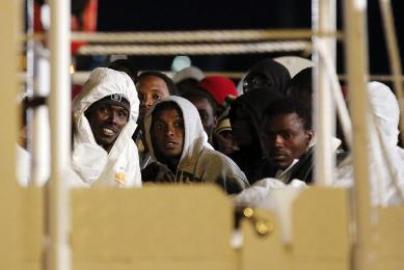Sudan slams U.S. report on human trafficking
July 3, 2016 (KHARTOUM) – Sudan on Sunday has criticized being placed by the United States on the blacklist countries involved in human trafficking, saying the report as “biased and intentionally distorting” Sudan’s efforts to combat human trafficking..

“The Government of Sudan does not fully meet the minimum standards for the elimination of trafficking and is not making significant efforts to do so,” said the report.
The report mentioned un verified reports about South Sudanese children sold for agricultural work particularly in West Kordofan. It accused the Sudanese army of recruiting children aged between 16-17 years. It also accused the government militia of the Rapid Support Forces of using child soldiers citing unverified reports.
It further said that asylum seekers from African and Arab countries are “highly vulnerable” to sex trafficking and forced labor in Sudan, citing kidnapping of Eritrean and Ethiopian refugees from east Sudan who are transferred into other countries for blackmailing and ransom. The Sudanese law enforcement agencies are accused of being involved in this criminal activity.
In a statement issued on Sunday, Sudanese Ministry of Foreign Affairs said that U.S report on human trafficking lacked accurate information on Sudan and neglected to acknowledge the government’s efforts to end recruitment of child soldiers and human trafficking.
The ministry stressed that Sudan has established law enforcement agencies in both federal and state levels, working with a high degree of coordination, to combat human trafficking.
Regarding the cooperation with international community in combating human trafficking, the ministry of foreign affairs said that Sudan has hosted in 2005 the UN Conference for Transitional Organized Crimes that covered human trafficking. And signed the United Nations Convention against Transnational Organized Crime (UNTOC) of 2000.
In 2014 “Sudan issued Anti- Human Trafficking Act that included capital punishment in some cases,” stressed the foreign ministry. It pointed to the national and regional efforts to combat human trafficking in eastern Sudan, including the establishment of a national committee to combat child trafficking and illegal immigration.
Earlier this year , the European Union granted a €100m development package to address the root causes of irregular migration in Sudan. The financial support came after pledge by the Sudanese government to cooperate with Brussels to stop human trafficking to Europe.
But Amnesty International criticized the EU policy saying it only focus on ”keeping people out, by preventing their arrival and facilitating their return, with no meaningful steps taken to increase mobility nor safe and legal routes for refugees”.
The Ministry of Foreign Affairs statement stressed that Sudan is committed to all its obligations with the international community and European Union to combat human trafficking.
“Sudan is committed to the international laws that it has ratified and will be an active member in the fight against human trafficking,” stressed the statement.
Last June, Sudan handed over to Italy an Eritrean man suspected of controlling one of the world’s four largest criminal migrant trafficking organization.
COURT SENTENCES HUMAN TRAFFICKERS
In a related development, s Sudanese court in Khartoum, on Sunday, sentenced to 10 years in prison 8 persons for human trafficking.
Khartoum Central Court, headed by Judge Osama Ahmed Abdalla, condemned eight defendants and acquitted one for the lack of evidence.
The defendants, who work for a human trafficking criminal network between Sudan and Libya, were condemned for criminal complicity and human trafficking across the border.
The court has decided to toughen the penalty against the defendants on the ground that human trafficking is a serious crime that threatens the security of the society and the state.
The court has also said that “based on facts, the defendants were found guilty of criminal accomplice with regard to sheltering and transporting people from Sudan to Libya after deceiving them that they are being taken to work in the traditional gold exploration in al-Muthalath (triangle) area in Sudanese northern state.
(ST)
